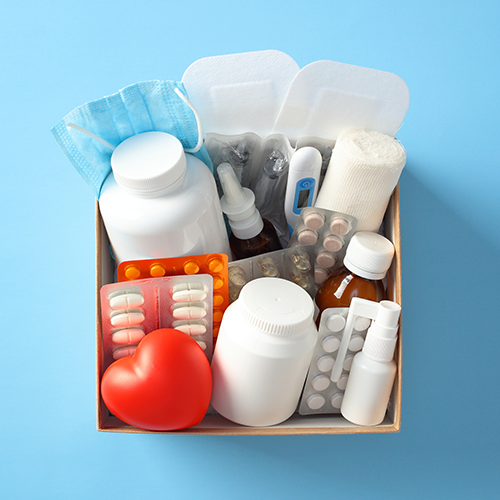Renew-V and You!Medication Effects-Articles
Medications Associated with Vaginal Dryness
Breastfeeding and menopausal transitions are some of the common causes of vaginal dryness. A low level of estrogen is the major reason that results in thinning and inflammation of vaginal walls, which eventually causes vaginal dryness. But sometimes, your medication may be the reason why you feel dry down there. You may be taking medicines to treat a cold or having antidepressants. They may be helping you by treating health conditions, but the medications may cause vaginal dryness, which can affect sexual pleasure.
What is vaginal dryness?
Vaginal dryness is a condition that happens when the tissues in the vagina get dry and thin and are not well moisturized. This dryness leads to soreness and itchiness in and around the vagina and also causes a lot of discomfort, especially during sex. It can happen at any age and is most common in women during or after menopause when estrogen levels start declining. Low levels of estrogen can cause thinning and inflammation of vaginal walls, which results in vaginal dryness.

Antihistamines
These medications are used for treating allergies. They can reduce vaginal lubrication due to their drying effect on mucous membranes.
Antidepressants
Some antidepressants, especially selective serotonin reuptake inhibitors (SSRIs), may contribute to vaginal dryness as a side effect. As per a 2019 study published in the Journal of Clinical Medicine, between 50 percent and 70 percent of people taking SSRIs experience some form of sexual dysfunction. They may experience low libido and vaginal dryness.
Hormonal contraceptives
Certain birth control methods, such as oral contraceptives or hormonal IUDs, might cause vaginal dryness by altering hormone levels. Birth control pills cause fluctuations in hormones and an imbalance in the estrogen/progesterone ratio, causing vaginal dryness. Birth control shots suppress female hormones, which reduces vaginal fluids and causes dryness, shares Dr. Gupta.
Antipsychotics
Medications used to treat mental health conditions, like schizophrenia, may lead to reduced vaginal lubrication as a side effect.
Decongestants
Over-the-counter decongestants are commonly used for colds. They can have a drying effect on mucous membranes, including those in the vaginal area.
Diuretics
Water pills, often prescribed for hypertension, can cause dehydration. This can potentially lead to vaginal dryness as a consequence.
Antibiotics
They indirectly contribute to vaginal dryness by disturbing the balance of bacteria present in the vagina, says the expert. This may lead to a yeast infection, which can make you feel dry down there.
Source – Health Shots. (2023, August 8). 7 types of medications that can lead to vaginal dryness. https://www.healthshots.com/intimate-health/feminine-hygiene/medications-lead-to-vaginal-dryness/
